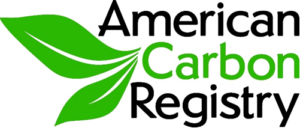ACR Presents Innovation Award to the Delta Conservancy
(By: American Carbon Registry ) | (April 20, 2017)
The American Carbon Registry presented the Innovation Award to the developers of a landmark methodology for California wetland restoration. The Sacramento-San Joaquin Delta Conservancy was honored as the lead agency.
Last night, the American Carbon Registry (ACR), a nonprofit enterprise of Winrock International, hosted its annual gala reception to recognize and thank its members and partners. ACR Director John Kadyszewski welcomed guests, presented highlights from the year and described the awards to be presented, including the individual Climate Leadership award as well as organizational awards based on ACR’s guiding principles of innovation, quality and excellence.
The Innovation award was presented to the developers of a landmark methodology for California wetland restoration. ACR honored the Sacramento-San Joaquin Delta Conservancy as the lead agency, HydroFocus as the lead author and both U.C. Berkeley and Tierra Resources for technical support for the development of the methodology for the Restoration of California Deltaic and Coastal Wetlands. Funding for the methodology was provided by the California Coastal Conservancy, Department of Water Resources, U.S. Department of Energy, U.S. Department of Agriculture, the Metropolitan Water District and the Sacramento Municipal Utility District (SMUD).
In the San Francisco Bay Area, more than 90 percent of historic tidal wetlands disappeared in the last 150 years. Over 2.5 billion cubic meters of organic soils have disappeared since delta islands were first diked and drained for agriculture in the late 1800s, resulting in land subsidence up to 25 feet below sea level. Drained and cultivated organic soils in the delta continue to oxidize, subside and emit an estimated one to two million metric tons of CO2-equivalent annually — equal to annual emissions from over 300,000 passenger vehicles.
“We have been pleased to work with ACR and other partners on this methodology and appreciate the recognition,” said Steve Deverel, president of HydroFocus. “Restoration activities that rebuild subsided lands are critical to long-term ecosystem sustainability, are important to reducing the risk of levy failure and sea level rise, and are a significant source of GHG emissions reductions.”
“State and federal funding remains insufficient to address land subsidence that threatens the California water system, and carbon market revenues could help fill the funding gap,” added Campbell Ingram, executive officer of the Sacramento-San Joaquin Delta Conservancy. “The new ACR methodology provides an incentive to landowners in the Sacramento-San Joaquin Delta, Suisun Marsh and other historically natural wetland areas in California to convert their most subsided and marginal agricultural lands to wetlands, or to produce wetlands crops such as rice, which will stop land subsidence and reverse it over time.”


